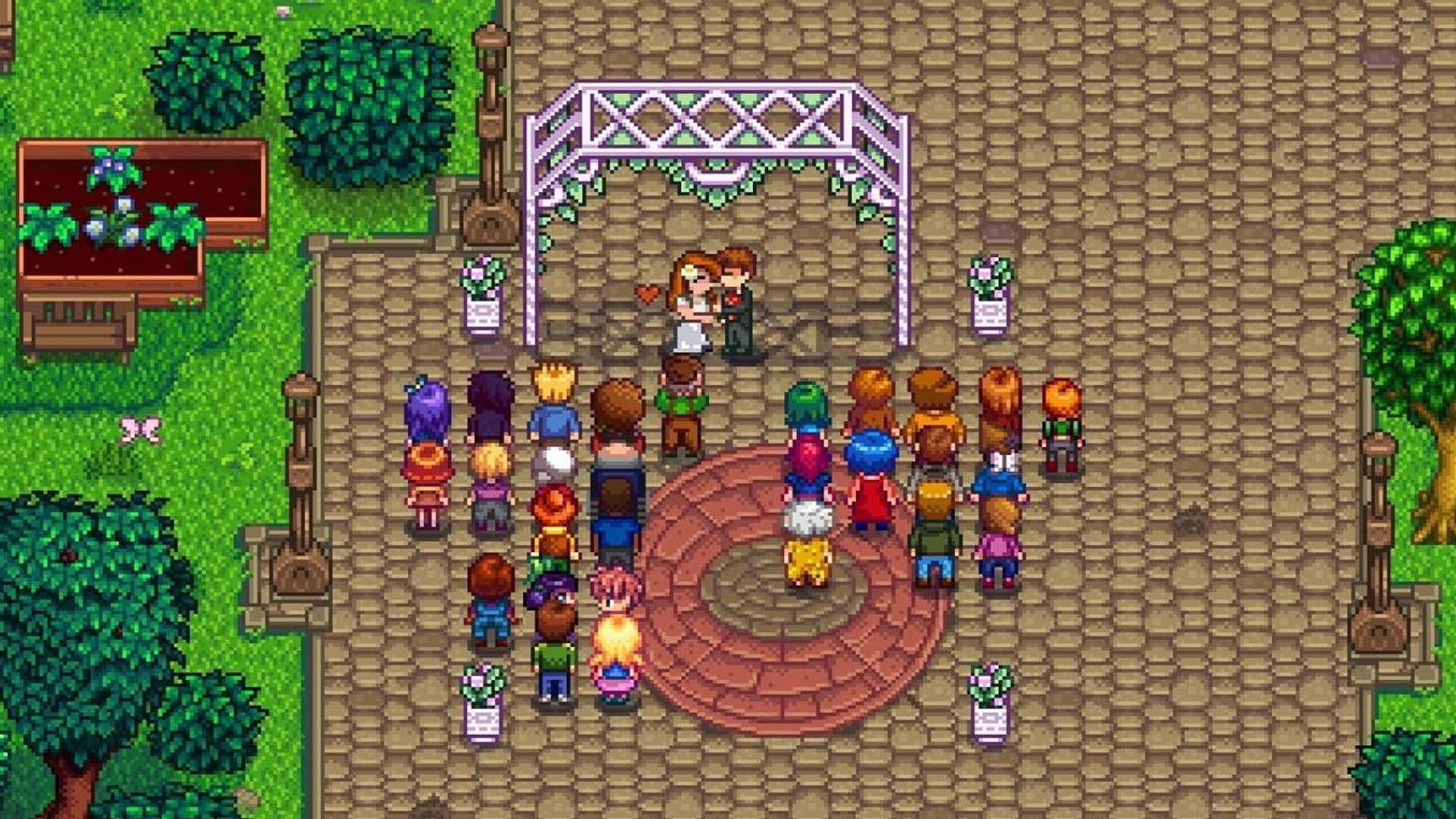Like many other long-term Stardew Valley players, I’ve made a point to cajole my friends and family into trying the game and playing it with me. Multiplayer games have always been a little bit stressful to me, in that way; I’m usually trying to show someone else the ropes or help them have fun, more so than pursuing my own goals. It doesn’t help that multiplayer games are a bit more fast-paced since you can’t just “pause” in the middle of a day. But there’s one file that acts as the exception to that rule: the farm I have with my partner.
For one thing, playing Stardew Valley co-op with another experienced player is very different from the usual chaos. My partner knows what tasks to do and how to do them, and on the off-chance she doesn’t, she can scour the wiki pages just as well as any Stardew veteran. But more than that, playing Stardew Valley together lets us enjoy a sense of togetherness that we often miss out on. Some backstory (I promise, I’ll get to the Stardew content soon): My partner and I come from the same hometown, but during the school year, we’re away at different colleges. Neither of us have enough breaks in our schedule–or enough money– to visit each other regularly. Like with any other long-distance relationship, we often have to get creative with what a “date night” looks like. Stardew Valley has stayed in the rotation for quite a while, though, and there’s a simple reason why.
Stardew Valley co-op mimics the feeling of living together, even from hundreds of miles away.
While most people will never live on a run-down farm in a small town like Pelican Valley, but the setting isn’t what’s important. Stardew Valley encourages– or, perhaps, forces– players to cooperate in a manner similar to running a household.
The task system that Stardew Valley uses amounts to a very fun chore schedule. There are daily “chores” to be completed, such as watering crops, taking care of livestock, and checking on various machinery throughout the farm. Additionally, the game includes villager requests that must be completed within a few days, seasonal patterns to follow, and overall goals (those that do not time out) for you to aim towards. The same types of chores exist in any household, as well, though they are usually divided into “daily”, “weekly”, and “monthly”. Stardew even requires players to perform spring cleaning whenever a new year starts and weeds invade your farm.
When you’re playing the game on your own, all of these responsibilities are your own, but there’s also no one else to be affected by your actions (or lack thereof). In co-op, you need to communicate with your fellow player(s) about who does which task– maybe each of you do your own respective chores, or you divide them up based on who prefers what. Or maybe you prefer to work together, with each of you contributing your own efforts to the same task. For my partner and I, we’ve developed a very specific system of getting things done. In the morning, I check on the crops, while she dashes around the farm looking after all the animals and making sure they’re fed. Whenever we go mining, we go together, but she takes care of fending off monsters while I gather up resources– our Stardew equivalent of washing and drying dishes. We go “grocery shopping” at Pierre’s together, too, but that’s more for the fun of it than any real function.
Once the required tasks are taken care of, there’s opportunities for each of us to do our own thing. We can run around doing our own separate “jobs” and enjoying the game how we prefer, while still contributing to our virtual household. In those cases, when we do cross paths, it’s a nice little surprise. We exchange gifts and spam reactions at each other, even though we’re already talking to each other in a voice call.
And at the end of the day, we come back to the same place. We retire to the same house, pet our cat, and settle down in the same bed. Then we start the cycle all over again.
Of course, it’s not the same as living together, not really. That has its own rewards and challenges that can’t be directly equated to a video game. But it helps bridge the gap– allowing us to work together and enjoy a sense of domesticity that we can’t have in real life.
